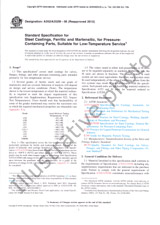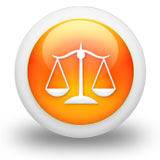We need your consent to use the individual data so that you can see information about your interests, among other things. Click "OK" to give your consent.
ASTM D7439-21
Standard Test Method for Determination of Elements in Airborne Particulate Matter by Inductively Coupled Plasma–Mass Spectrometry
Translate name
STANDARD published on 1.9.2021
The information about the standard:
Designation standards: ASTM D7439-21
Publication date standards: 1.9.2021
SKU: NS-1041752
The number of pages: 27
Approximate weight : 81 g (0.18 lbs)
Country: American technical standard
Category: Technical standards ASTM
The category - similar standards:
Annotation of standard text ASTM D7439-21 :
Keywords:
analysis, elements, mass spectrometry, metals, metalloids, sample preparation, workplace air,, ICS Number Code 13.040.30 (Workplace atmospheres)
Additional information
| Significance and Use | ||||||||||||||||||||||||
|
5.1?The health of workers in many industries is at risk through exposure by inhalation to toxic metals and metalloids. Industrial hygienists and other public health professionals need to determine the effectiveness of measures taken to control workplace exposure. This is generally achieved by making workplace air measurements. This test method has been developed to make available a standard methodology for valid exposure measurements for a wide range of metals and metalloids that are used in industry. It will be of benefit to agencies concerned with health and safety at work; analytical laboratories; industrial hygienists and other public health professionals; industrial users of metals and metalloids and their workers; and other groups. 5.2?This test method specifies a generic method for determination of the concentration of metals and metalloids in workplace air samples using ICP-MS. For many metals and metalloids, analysis by ICP-MS may be advantageous, when compared to methods such as ICP atomic emission spectrometry, due to its sensitivity and the presence of fewer spectral interferences. 5.3?The analysis results can be used for the assessment of workplace exposures to metals and metalloids in workplace air. |
||||||||||||||||||||||||
| 1. Scope | ||||||||||||||||||||||||
|
1.1?This test method specifies a procedure for sample preparation and analysis of airborne particulate matter for the content of metals and metalloids in workplace air samples using inductively coupled plasmamass spectrometry (ICP-MS). This test method can be used for other air samples provided the user ensures the validity of the test method (by ensuring that appropriate data quality objectives can be achieved). 1.2?This test method assumes that samples will have been collected in accordance with Test Method D7035 with consideration of guidance regarding wall deposits provided in Guide D8358. 1.3?This test method should be used by analysts experienced in the use of ICP-MS, the interpretation of spectral and matrix interferences and procedures for their correction. 1.4?This test method specifies a number of alternative methods for preparing test solutions from samples of airborne particulate matter. One of the specified sample preparation methods is applicable to the measurement of soluble metal or metalloid compounds. Other specified methods are applicable to the measurement of total metals and metalloids. 1.5?It is the user's responsibility to ensure the validity of this test method for samples collected from untested matrices. 1.6?Table 1 provides a non-exclusive list of metals and metalloids for which one or more of the sample dissolution methods specified in this document is applicable. 1.7?This test method is not applicable to compounds of metals and metalloids that are present in the gaseous or vapor state. 1.8?Table 3 provides examples of instrumental detection limits (IDL) that can be achieved with this test method. Table 5 provides examples of method detection limits (MDL) that can be achieved. 1.9?No detailed operating instructions are provided because of differences among various makes and models of suitable ICP-MS instruments. Instead, the analyst shall follow the instructions provided by the manufacturer of the particular instrument. This test method does not address comparative accuracy of different devices or the precision between instruments of the same make and model. 1.10?The values stated in SI units are to be regarded as standard. No other units of measurement are included in this standard. 1.11?This test method contains notes that are explanatory and are not part of the mandatory requirements of the method. 1.12?This standard does not purport to address all of the safety concerns, if any, associated with its use. It is the responsibility of the user of this standard to establish appropriate safety, health, and environmental practices and determine the applicability of regulatory limitations prior to use. 1.13?This international standard was developed in accordance with internationally recognized principles on standardization established in the Decision on Principles for the Development of International Standards, Guides and Recommendations issued by the World Trade Organization Technical Barriers to Trade (TBT) Committee. |
||||||||||||||||||||||||
| 2. Referenced Documents | ||||||||||||||||||||||||
|
We recommend:
Updating of laws
Do you want to be sure about the validity of used regulations?
We offer you a solution so that you could use valid and updated legislative regulations.
Would you like to get more information? Look at this page.




 Cookies
Cookies
